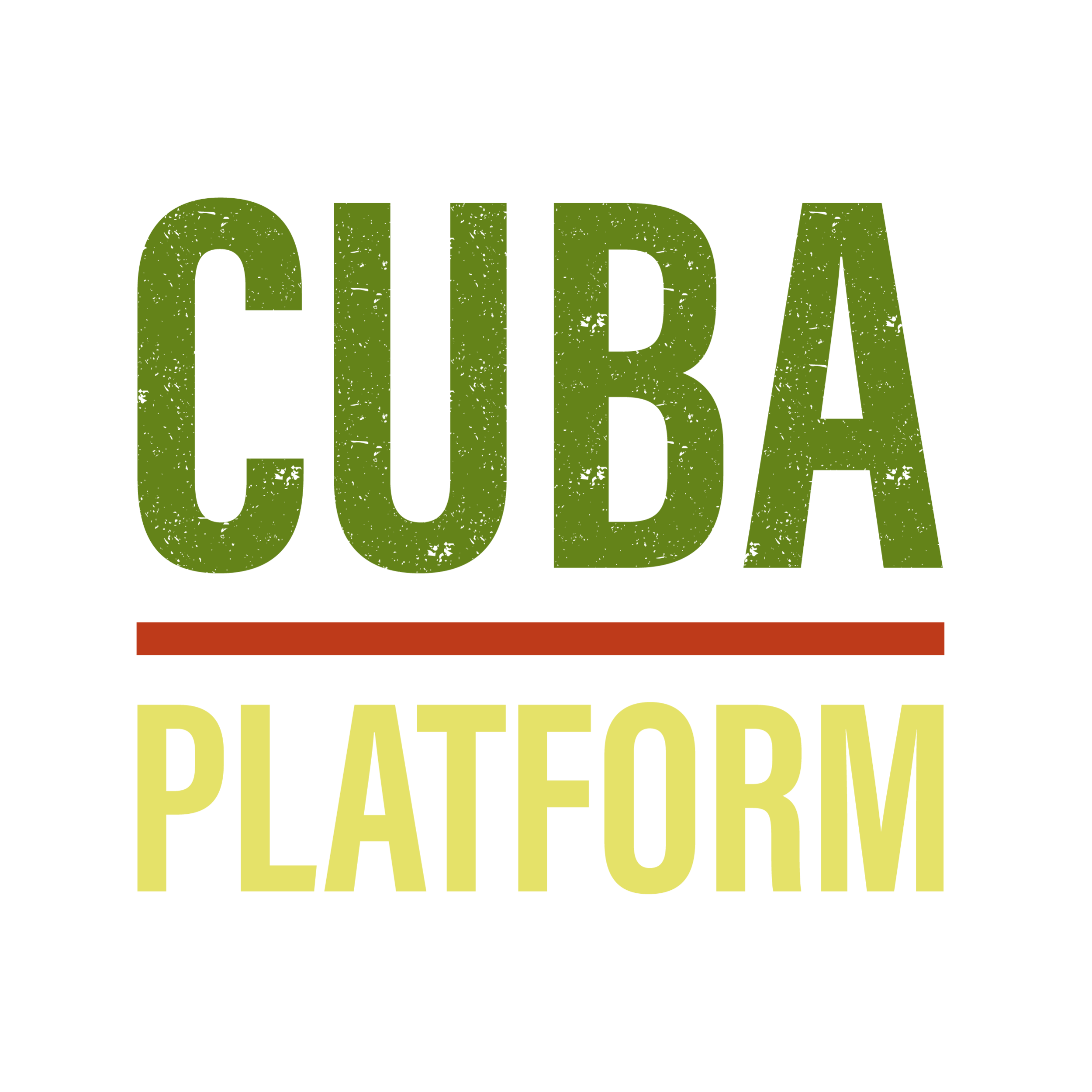Caring in Crisis: #BlackLivesMatter
Today would have been Breonna Taylor's 27th birthday. Click here to sign the petition to hold the officers accountable for her murder.
June 5, 2020
Dear friends and colleagues,
This week’s message was slated to be a look at new innovations coming out of Cuba during the era of COVID-19. Instead we are focusing our attention on the struggle for Black lives that is happening here in the U.S.
Our convenings in Cuba always end up providing us with new understandings of our own country. During our July 2019 convening, participants taught us about issues of Othering and Belonging in the U.S., and we continue to reflect on them in our efforts to be better antiracists, allies, and sisters to the movement.
This week – after some brief background for those outside the U.S. – we feature perspectives and activities from our convening partners and participants; followed by messages of support and solidarity from Havana.
Background:
A week ago, the country erupted in protest and grief following the murders of Black Americans George Floyd, Breonna Taylor, Ahmaud Arbery, Tony McDade, Sean Reed (and so many more). Here in D.C., where the three of us live and work, tens of thousands of protestors have come out for eight days straight to denounce racist law enforcement structures, to demand justice, and to insist that #BlackLivesMatter. Although protests have mostly been peaceful (with some exceptions), the White House has referred to them as “terrorists” and called in national guardsman, guards from the federal bureau of prisons, and federal police.
As Opal Tometi, one of the founders of the movement for Black Lives describes, the “war on black lives” is not new, but the moment feels unique as it comes on the heels of the COVID-19 pandemic and massive economic instability and injustices. As described in an open letter signed by public health and infectious disease professionals – white supremacy is a lethal public health issue that predates and contributes to COVID-19.
Wisdom and Action:
Rich Wallace, founder of Chicago’s Equity and Transformation and senior Atlantic Fellow contributed to an article in the Chicago Reader that contextualizes the history of structural inequality that precedes the recent mass protests; the same history that explains the disproportional impacts of COVID-19 on Black people in the US. The author calls for prison and police abolition, explaining “the proposal is to direct the resources that the state has allocated toward prisons and police for decades toward community directed and community-endorsed education, health care, food, jobs, and housing."
Rev. Ben McBride, co-director of PICO California, has launched #Bringtheheat, a campaign to “transform the public safety system into one that we can all trust.” The campaign joins the call to all lawmakers to sign a zero tolerance pledge to #FireAllRacistCops, offers resources, and is organizing trainings co-led by law enforcement and community members to recenter community-police relations.
john a. powell, director of the Othering and Belonging Institute at UC Berkeley, explains that the killings of George Floyd and others are not only murder – but a form of terror. “It is not surprising,” he writes, “in a country that has a long history of anti-Black racism, fear of Black bodies, and a criminal justice system that does not see the humanity of Black and Brown people that there will be a continued killing of Blacks with impunity.” Nonetheless, he insists that hope remains: “With the collective trauma that the nation is facing, it is more than understandable to despair. And yet, we must resist this inclination. Not only because there are glimmers of hope and cracks in the solid wall of injustice and hatred, but also because our care for the world calls on us to keep the struggle for love and humanity alive.”
The 2019 Cohort of Atlantic Fellows for Racial Equity calls on everyone to make a daily commitment to work for racial justice, writing: “This call to action requires participants to be disciplined in the practice of anti-racism, racial justice, and racial equity, which begins with self-examination and includes a range of actions: from subtle teaching moments to spiritual practices, to charged confrontations, to using racial justice as a principle to guide personal and political choices, among others."
We stand in solidarity with these calls and with the demonstrations. Please continue reading for words of love and solidarity from some of our partners in Cuba, and for additional resources. Be safe.
With love,
Sarah, Justine, Mariakarla
The CLUB DEL ESPENDRU is a collective of Cuban artists, intellectuals and black activists who fight against racism. They send this message, excerpted from a longer statement that they invite everyone united in the fight around the world to sign on to.
Millions of people suffered during the 8 minutes and 46 seconds that it took for a United States police officer kill George Floyd, unleashing a great international reaction. EL CLUB DEL ESPENDRÚ joins in support, hoping that the protests will channel the fight and awareness against racism, in all its forms; from those as brutal as this murder, to others that do not seem so brutal, but that also annihilate lives... The fight against racism is today one of the great battles faced by humanity, as it cuts across every society and shares all forms of exploitation. 21st century racism is renewed and strengthened with impunity, becoming naturalized among the discriminated, themselves, through guilt and terror, which extinguish their self-esteem and critical capacity. EL CLUB DEL ESPENDRÚ accompanies activists and everyone involved in this crusade that started in Minneapolis and extends to other countries, for a more just and equitable world. Every morning we ask for protection for their lives, and we replicate their voices, hoping for victory, to heal not only the United States, where there is always a greater media impact, but the entire world, particularly our region, where there are many deaths in oblivion and where we also need to breathe and continue fighting for the reparation and justice we deserve.
Martiza Lopez McBean, General Coordinator of the Cuban Neighborhood Network of Afro-descendants affirms solidarity with afro-descendants in the U.S. during the COVID-19 crisis and current protests:
The Neighborhood Network of Afrodescendants and ASERE, an affiliated group made up of academics, researchers, and other community members outside of Cuba, proclaim their solidarity with the peoples of the world affected by the COVID-19 pandemic, especially the Movement for Black Lives, the Afro-descendant populations in the United States, and the most vulnerable sectors amidst them: the poorest, women, trans people, migrants, refugees, and also children and the unemployed victims of neoliberal capitalism and state-supported repression. We remain committed to a daily practice of care, mutual aid, and solidarity, and we stand firm in our adherence to the principles of the fight against racism, with the goal of full equality in a world free of discrimination and segregation.
The Centro Felix Varela, a Cuban non-governmental organization writes:
Sisters and Brothers! The great Martin Luther King Jr. said that, “Our lives begin to end the day we become silent about things that matter.” A culture of peace and love is created through non-violence, assertive communication, dialogue, and citizen participation. Be free in your thoughts and actions. Focus your efforts on humanism and human dignity. Equity is more than a personal project, it is a pathway to achieving justice and civilized alliance between human kind. Never stop dreaming of a world of peace and solidarity, richness of the soul, and strength of spirit. Fight every second against discrimination because it is an act of humanity, justice, and strength. Your pain is our pain. Do not rest, because, as Jose Martí said: “Rights are taken, not asked for. They are wrested, not begged for.”




